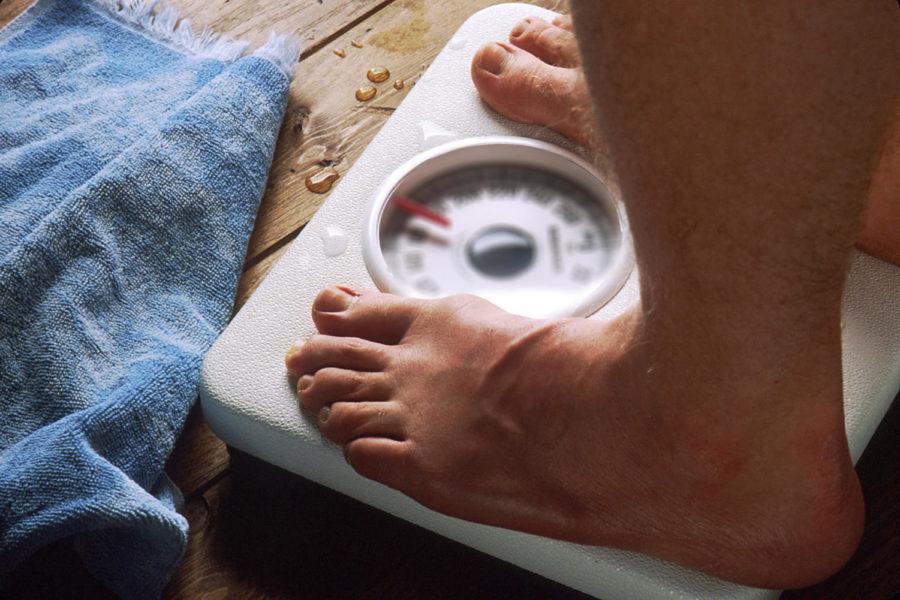Timberlake: Take comfort in your body weight, but accept consequences of obesity
Columnist Ian Timberlake argues that the “fat acceptance movement” is sending out a false acceptance message about obesity.
October 16, 2013
The Fat Acceptance Movement, sometimes known as “fat appreciation,” is a slowly spreading movement that began in the 1960s. The National Association to Advance Fat Acceptance originated as a feminist movement in a way to counter the social expectation for women to look good for their (or any) man.
Social attitudes like this are absolutely warranted, but now the movement has turned into a beast of its own and is now sending out a false acceptance message.
The Fat Acceptance Movement spawned a new “lifestyle philosophy” called “Health At Every Size.” HAES says that you can be healthy regardless of your size, and promoters of the lifestyle often cite a study that claims weight loss increases mortality. I wouldn’t place bets on that study just yet.
It would be wrong to advocate tough love, and it would be equally wrong to console these individuals by saying there isn’t a problem. Ignorance gets us nowhere.
Obesity isn’t exactly an issue that has been around for very long. Just 20 years ago, according to the Centers for Disease Control and Prevention, only around 10 to 14 percent of Americans would have been considered obese. Today, not a single state has an obesity rate less than 20 percent and 12 states have an obesity rate greater than 30 percent.
So what does this mean? It means that there has been a shift within the last couple generations that caused such an alarmingly quick spike in obesity. And no, humans are not “designed” to handle obesity.
Obesity is a precursor to many life threatening things, according to Stanford Hospital: 300,000 premature deaths, high blood pressure, diabetes, heart disease, joint problems, sleep apnea, cancer, metabolic syndrome and psychosocial depression, to name a few.
Some argue that metabolic syndrome might actually be the cause of obesity as opposed to a result. But then what causes a problem with our metabolism? Things to consider would be the types of foods we eat every day, such as endless supplies of soda and other sugary drinks or honey sauce from KFC, where the packet lists five ingredients and the first three are high fructose corn syrup, sugar and corn syrup.
Couple those food factors with an increasing lack of exercise. This decrease in exercise is brought on by a continued desire to stay inside thanks to the advent of social video games and social websites. Add a little psychosocial depression and a never ending loop of obesity-induced depression, comfort eating and social media will take root in the lives of more and more citizens.
So what about fat acceptance?
Fat acceptance smoothes over issues that are aiding in obesity by comforting problems the same way foods can be comforting. Not to say that all obesity is brought on by laziness and inability to put down a fork — I will be on a medication for the rest of my life that has a side effect of increased appetite — what I am trying to say is that if this wasn’t a problem 50 years ago, then why is it a clinical/medical problem today?
We should never shame people for being overweight but we should never lose sight of the fact that there are consequences for being overweight. Even though it may be easier for others to bring down their body fat percentage, the fact is that humans suffer a serious decline in health as body fat percentage goes above what is considered healthy. That is, after all, why it is called healthy.
In 2011, Congress amended the Americans with Disabilities Act to increase the level of protection toward individuals who have over 100 percent the recommended body mass index (outside of the inaccuracies of the index, that’s nearly half one’s mass in fat). This makes it illegal for a business to discriminate against clinically “morbidly obese” individuals. While discrimination is wrong in many ways, there are areas where discrimination is necessary.
If I am hiring a steelworker who is to be on the construction site welding beams for a new building, why should it be illegal for me to hire someone who is in better shape than someone who is morbidly obese even if they have the same skill set? I can think of many reasons why, and some include the safety of the individual and the other workers.
These movements are giving Americans false consolation and teaching that there shouldn’t be consequences for being obese. We don’t want to play out the movie “Wall-E,” do we?
What we should do is teach what it means to be healthy at a far younger age and far more frequently than our school system does. We should teach not that it’s bad to be obese or bad to be anorexic, but good to be healthy and in shape. It’s fine to be happy with yourself at any body fat percentage, so long as you understand the consequences.







